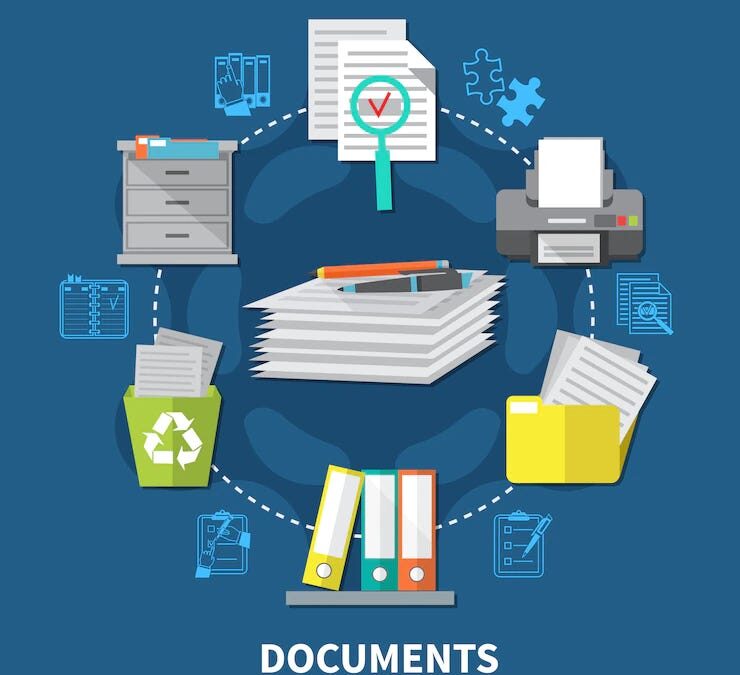Clients often reach out to Crosspointe because they want to replace their billing, practice management, accounting, or document management software. The first question they ask is: “What is the best software out there for what I need?” The answer to that question is always, “It  depends.” Asking this is like asking someone “what is the best college to attend?” It depends on what you are interested in studying, what career you aspire to pursue, how much money you are willing to spend, your personality, etc. When asked for help in selecting the “best” software, we frequently recommend a Process Change Project, instead.
depends.” Asking this is like asking someone “what is the best college to attend?” It depends on what you are interested in studying, what career you aspire to pursue, how much money you are willing to spend, your personality, etc. When asked for help in selecting the “best” software, we frequently recommend a Process Change Project, instead.
We find that many times it is not the current software itself that is the problem. It is your internal operating procedures, or processes. By identifying, and perhaps modifying, the processes in place in your firm, you may find that your existing software will perform all of the actions required with just a “tweak” or two.
Here are the things we often discover when asked to replace software:
- Your software is actually already capable of doing what you want. You just need someone to configure it correctly.
- Your staff needs better training in your processes, internal procedures, and/or the correct operation of your software.
- Integration of the software in question with other critical applications in use will eliminate double entry and improve accuracy.
- Custom report development will provide the management information you are looking for.
So, before you decide to purchase new software, it is a good idea to examine your processes first, and determine if there is a need for change. This is an eye-opening endeavor. Here is what is involved in a Process Change Project:
I EVALUATION OF EXISTING PROCESSES
A careful review of how information flows through your firm from start to finish will highlight most of the processes now in use at the firm. This review needs to encompass all personnel at the firm, as well as any recurring outside resources (e.g., accountants, vendors, clients, etc.) that directly impact your processes. We find that there are often significant differences between a documented process and the actual implementation of that process. If the documented process is not being adhered to, it is critical to discover the cause of this “disconnect”. Some reasons may include a broken process, inadequately trained personnel, inadvertently rewarding contradictory behavior, internal staff resistance, etc.
Tailoring the process consultant’s interviews for specific staff positions focuses the discussion not only on what tasks are performed by that person, but the how and the why as well. Do not provide the questions to interviewees in advance, because people who prepare in advance will often tell you what they think the firm wants to hear, or what they are supposed to be doing, not what they are actually doing. Open-ended questions allow for more free-form thinking, and frequently uncover information the interviewee might not have thought about.
Staff lawyers and partners often answer the same question differently when asked what a client is looking for in your firm. This disconnect can be telling. When lawyers performing day-to-day activities do not clearly understand how a partner wants a customer experience to be delivered, the lawyers will deliver that experience in the way they believe is the right way. As a result, they bypass processes and workflows they think are unnecessary or conflicting.
When interviewing paralegals and secretaries, we frequently surface broken processes. Information is captured in several places. A new client may be entered once in the practice management package, again in an accounting package, keyed into the photocopy machine, typed into a new client document, entered on the holiday card spreadsheet, etc.
The staff interview should focus on the individual’s repetitive daily tasks, such as:
- New client and matter setup procedures
- Docketing by matter and calendar, with notification to lawyers, clients, and other concerned parties
- Document workflow, including handling of incoming documents, document production, document tracking, version control, and filing
- Conflict of interest checking
- Tracking of related parties on matters
- Updating parties for critical dates on a matter
In Part 2 of this article we will hone in on Process Change Recommendations and the all-important Implementation Process.
Crosspointe Consulting Group, LLC has consultants with years of experience in helping law firms improve their operations through better process control.. Our specialties lie in areas beyond the software employed. Please call us at 877-357-0555 or write to us at [email protected]. Let us help you get your firm running smoothly.

Gerri Martin, a member of Crosspointe Consulting Group, LLC holds her undergraduate degree in Accountancy and is a CPA. This gives Gerri the business background needed to understand the financial and management implications of implementing software and business processes. She started working with Attorneys in 1986 and focuses on supporting Attorneys, Law Firms, and Law Departments. In 1990, Gerri obtained a master’s degree in Project Management while graduating with honors. In 1992, she received her PMP certification in Project Management from the Project Management Institute. She is the past Vice President of Professional Development for PMIs Chicagoland Chapter. This project management background lends itself to helping lawyers and their firms streamline their workflow and eliminate needless duplication of effort.



